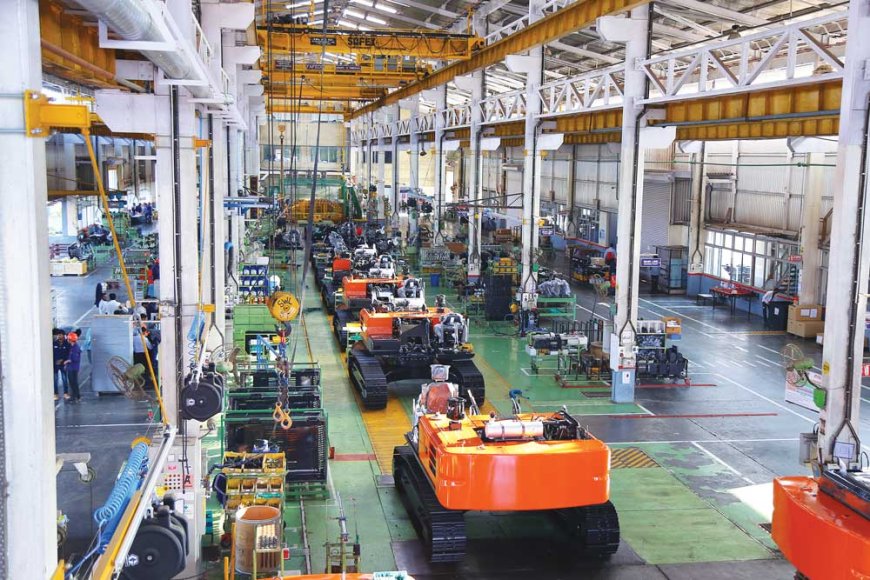In 21st century milieu, smart technologies like IOT & machine learning are integrated with manufacturing to increase & enhance productivity.
Anand Plant Head, Kharagpur Plant, Tata Hitachi What do you think are the latest ‘smart technology’ trends in the manufacturing sector, especially in the manufacturing of construction and mining equipment and what do

What do you think are the latest ‘smart technology’ trends in the manufacturing sector, especially in the manufacturing of construction and mining equipment and what do you think is the impact of this on the manufacturing processes, enterprise value chain and supply chain?
In today’s modern, 21st century milieu, smart technologies like the Internet of Things (IOT) and machine learning are integrated with manufacturing to increase and enhance productivity and efficiencies. These cutting-edge technologies enable systems to talk to each other and share and analyse information on processes and systems.
This collected and analysed data is sent to a central cloud-based service where it is aggregated with other data and then used to guide intelligent actions. We can see this playing out in across the board, from consumer facing sectors like passenger vehicles and consumer durables, to large factories that are increasingly getting automated through these technologies.
Can you elaborate on the manufacturing philosophy and production principles of your company?
Our processes hinge on the three following guiding principles that direct all our actions:
- Providing the right machine at the right time
- Fixing it right the first time, and
- Quality is not only what we produce, but what we deliver
In addition, we accord key importance to aspects like zero harm to all stakeholders, optimum working through continuous improvements and loss reduction. We have also inculcated a culture of standardised processes that include visualization, Kaizen PDCA (Plan, Do, Check and Act) cycle and consensus building, among others. These initiatives go a long way in improving efficiencies.
In addition, we also adhere to level production, zero leakage till 500 hours in all operations and final output, zero defects at machine commissioning, zero structural failure till 2,000 hours of machine working.
We have also strictly imbibed and follow Hitachi Global Monozukuri rules and diagnosis.
How do these principles help in ensuring ‘zero defects’, ‘environment-friendliness’ and ‘safety’ in your production processes and supply chain? Brief us on the on-going / on-the-pipeline initiatives to make your manufacturing more sustainable?
Our Industry 4.0 strategy is theme based. Our Zero effect and Zero defect (ZED) themes include:
- Paperless organisation as a zero-effect theme.
- 100% quality assured as a zero-defect theme.
- Each year we identify and implement projects based on these themes.
To what extent has your company imbibed digital technologies on manufacturing and how have you been able to leverage the digital platforms / flexible and scalable technology in your manufacturing set up?
The key areas that we are focusing in terms of leveraging digital technology include improvement of factory productivity, improvement of maintenance service, inventory visualization, implementation of paperless organization and 100% quality assured production. We constantly identify projects based on these themes and scale it throughout the organization.
What do you think are the major challenges in replacing the legacy system with newer and smarter technologies?
One of the foremost challenges to digitalisation is that of aligning digital training and development while migrating from legacy systems to digital systems. Significant effort needs to be accorded towards digital literacy in this regard.
In addition, data security is a key aspect, where the IT infrastructure needs to be strengthened significantly to consider the management as well as safekeeping of large databases.
Yet another challenge that needs to be addressed while going for digitalisation is bringing out meaningful and useful inferences and extrapolations from available data. The key areas of focus for this would be involving predictive analytics and forecasting.
Hits: 53








